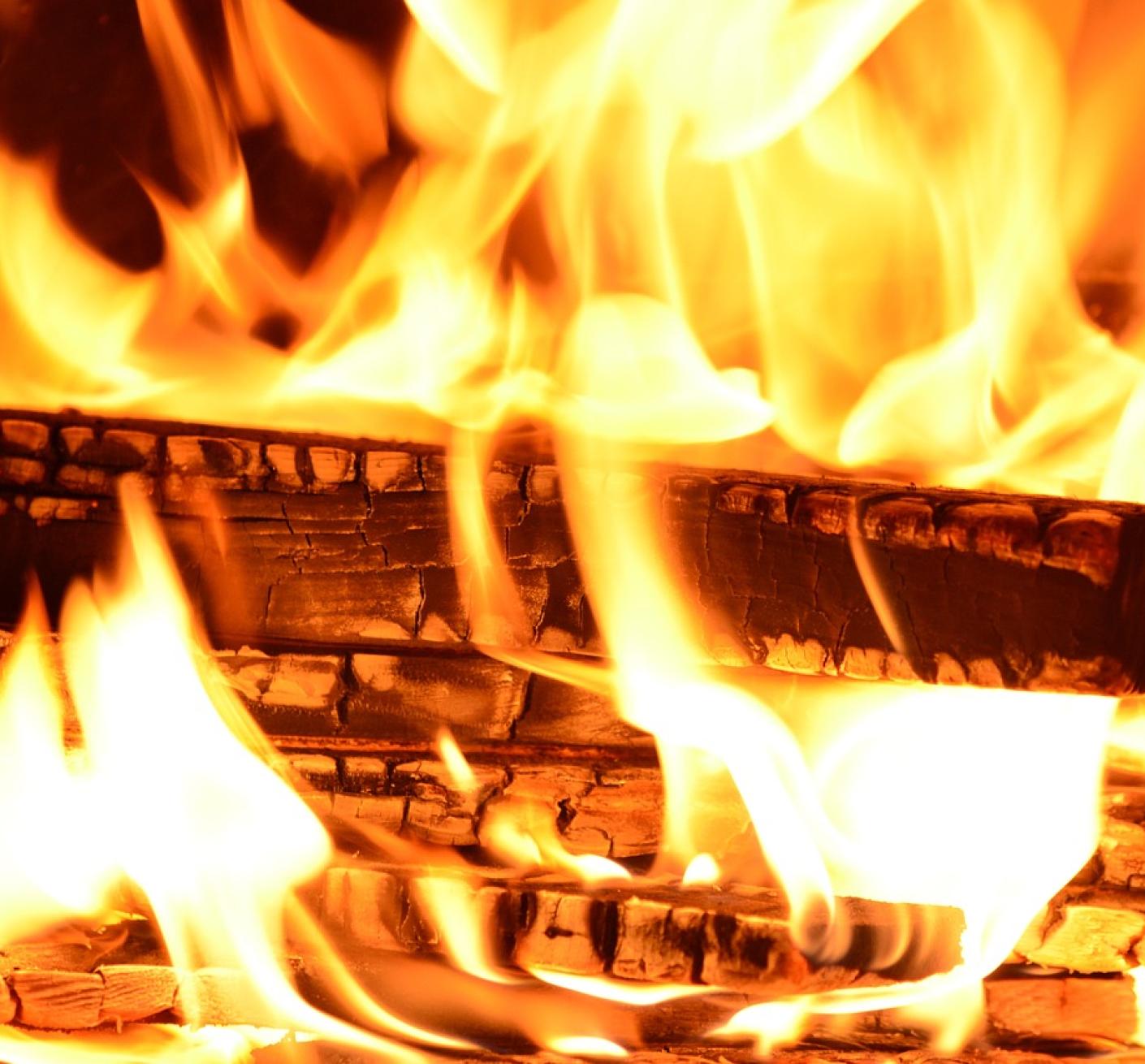Winter home safety
Did you know that:
- Around 65 fires a year are caused by faulty electric blankets.
- Two fires a day are caused by heaters.
- In England on average, 7,700 chimney fires occur every year.
The below information will help you keep safe throughout the winter period as this can be a particularly risky time for fires due to the need to keep warm.

Heating your home
Open fires:
- Be careful when using open fires to keep warm. Make sure you always use a fire guard to protect against flying sparks from hot embers.
- Make sure embers are under control and properly put out before you go to bed.
- Keep chimneys and flues clean and well maintained.
Portable heaters:
- Keep heaters away from curtains and furniture and never use them for drying clothes.
- Always unplug electric heaters when you go out or go to bed.
- Try to secure heaters against a wall to stop them falling over.
- Only use gas or paraffin heaters in well-ventilated areas.
Keeping warm
Using electric blankets:
- Never use hot water bottles in the same bed as an electric blanket, even if the
blanket is switched off. - Unplug blankets before you get into bed, unless they have a thermostat control for safe all-night use.
- Store electric blankets flat, rolled up or loosely folded to prevent damaging the
internal wiring. - Test electric blankets every three years. Age UK or your local fire and rescue service may be able to do this for you.
- Try not to buy second-hand blankets and check regularly for wear and tear. Replace your blanket when it is more than 10 years old.
- Always follow the manufacturer’s instructions.
If the electricity fails
Alternative lighting:
- Keep a battery operated light or torch handy in the event of a power cut or failure.
- If you have to use candles or matches always take special care. Put them out completely before leaving the room or going to bed.
- Make sure candles are secured in a proper holder and away from materials that may catch fire – like curtains.
- Keep a mobile phone handy so you can still make an emergency call if there is a power cut.
Fire safety for thatched buildings
- Fit a smoke alarm in the loft and make sure it is connected with other alarms in the house.
- Use lightning conductors that have been tested and check they carry one of these signs – they show they are approved and are safe.
- Don’t burn rubbish or garden waste near a thatched property.
- Use a bulkhead light fitting in your loft space, instead of an exposed light bulb, as these are more of a fire hazard.
- Never light fireworks near the property. Fit TV aerials to freestanding poles to avoid
thatched roofs being struck by lightning.
